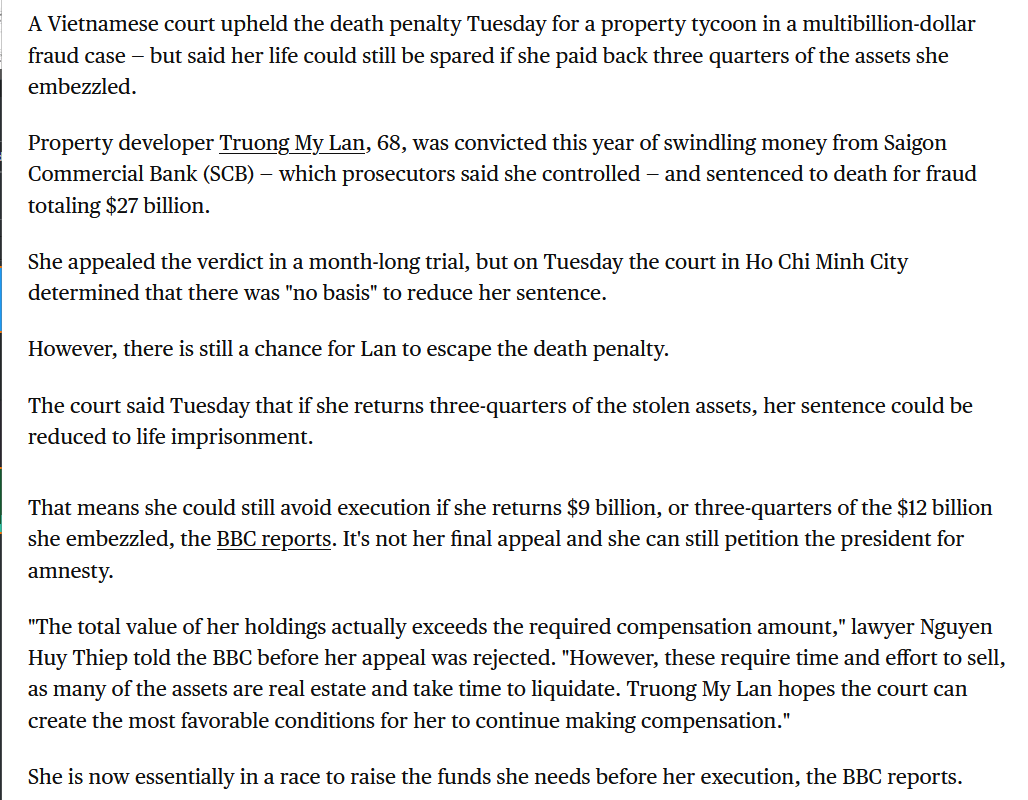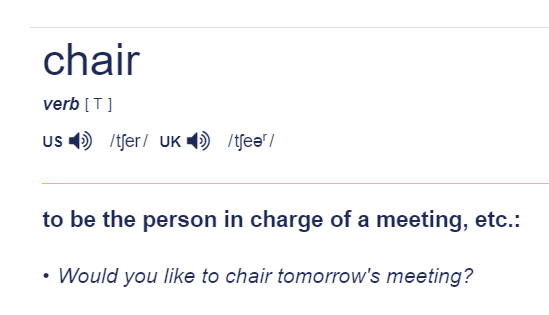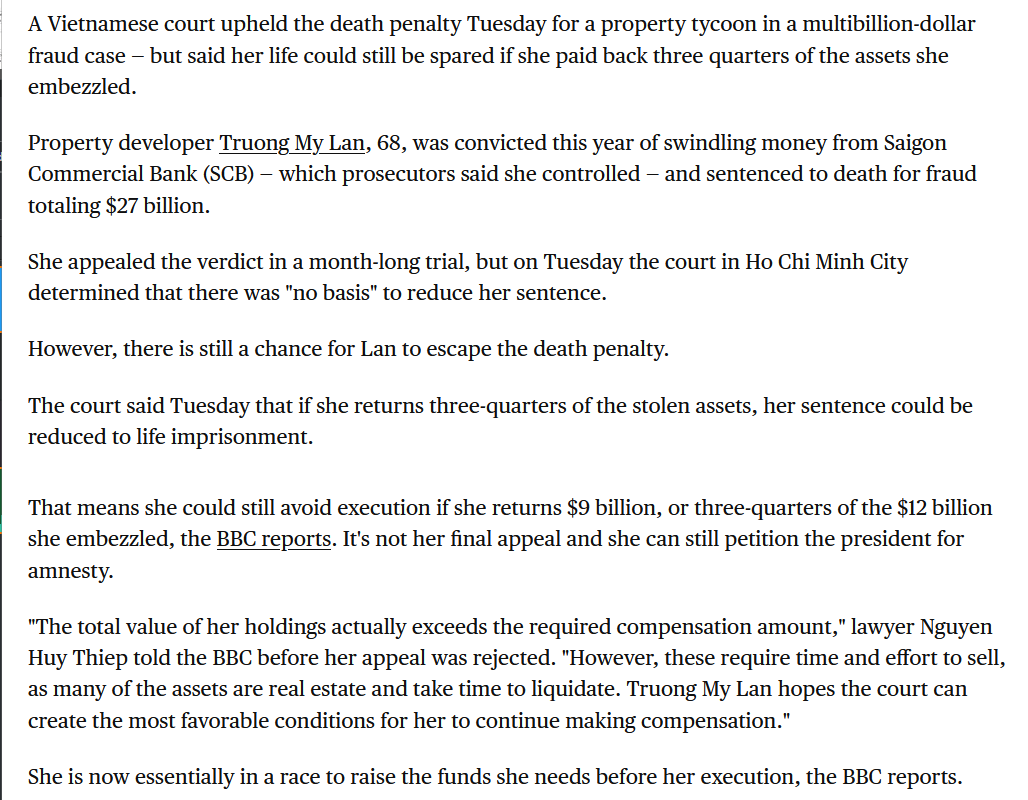
resolves YES if the court accepts $9B in compensation and commutes her death sentence to something lesser

As she still has a final appeal (to lower the amount) or could petition to the president, then there could be a situation where she pays enough but it isn't $9B.
This market will resolve yes ONLY if she pays $9B +/- $1B to the government and her sentence is reduced from the death penalty. This could include an agreement in installments over a period of time as long as the total amount (including interest) is about $9b.
@strutheo As per market, resolves NO. I'm a YES holder but I think the correct resolution here is pretty obvious - it's not asking whether she gets executed or not, it's asking whether she found the money.
For example, if she hadn't found the money but had then escaped from prison before being executed this would still clearly have resolved NO.
unbiased non-trader here.
I think it should resolve NO. I agree with @JamesBaker3 this market was a clear Yes, Vs anything else. If she died, it wouldn't have N/A'd either, so this should resolve no IMHO
Vietnam abolished the death penalty for property embezzlement and her sentence was converted to life imprisonment as a result, without paying the $9B: https://www.straitstimes.com/asia/se-asia/vietnam-tycoon-truong-my-lan-will-not-face-death-penalty-lawyer
The sweepstakes market for this question has been resolved to partial as we are shutting down sweepstakes. Please read the full announcement here. The mana market will continue as usual.
Only markets closing before March 3rd will be left open for trading and will be resolved as usual.
Users will be able to cashout or donate their entire sweepcash balance, regardless of whether it has been won in a sweepstakes or not, by March 28th (for amounts above our minimum threshold of $25).
We can guess that she has at least five years to spare, according to this Reddit comment citing a Vietnamese documentary on death row.
If her legal team submitted a request for pardon, it must have taken place within seven days of receiving her verdict in December. The case seems pretty high-profile and her previous appeals have been denied, which makes me think that she doesn't have much of a shot at either pardon or reducing the price tag. Plus her lawyers claim that she has the assets and just needs time to liquidate. So: what's the probability that you could sell $9B in Vietnamese real estate in five years if your life was on the line?
Statista claims that the market cap of Vietnam's real estate market will be a cozy $4.44T USD in 2025. Another website also give a number around $4T. So it's not like she needs to sell the whole country to get the requisite sum out.
I'm not really sure how to get a base rate for the rate of real estate liquidation in $/time so I'll just take a look at how the Evergrande thing's been doing. "Evergrande's liquidation could take more than a decade to be completed, according to some offshore investors" and they've got a whole 300B to clear out. $300B/10 years > $9B/5 years, so I think this lady's gonna be fine. 60%.
@vibhav Probably Sweeped, in this case. "swept" is the past-tense of the verb "sweep". But in this case, "Sweep" is its own term, and technically a noun, as it is short for "sweepstakes". Then modifying the shortened noun into a verb would be "sweeped", just like how people can be "chaired", with "chair" as the noun.
That's turning the verb "churn" into the past-tense verb "churned", which is fine.
I'm saying that the usage of "sweeped" in Manifold's comment here is correct, because instead of turning the verb "sweep" into the past-tense verb "swept", they are turning the shortened noun "sweep" (for sweepstakes) into a verb, and therefore the correct word would be "sweeped".

Future tense "chair", present tense "chairing", past tense "chaired". What's the issue?
